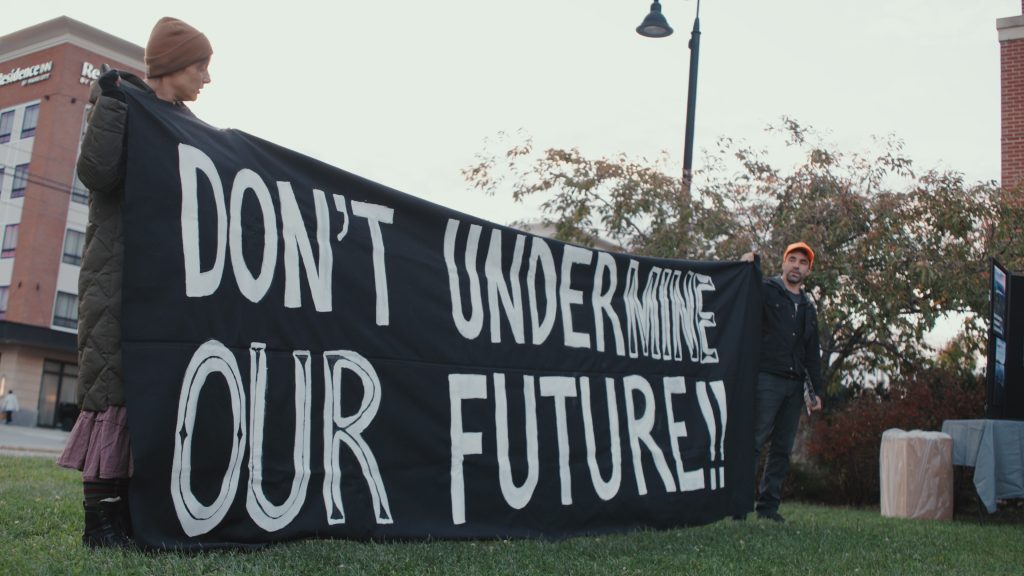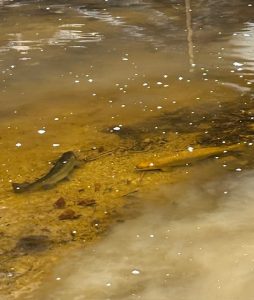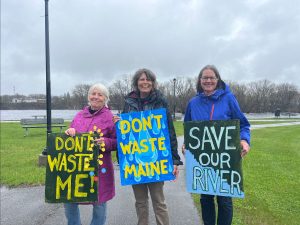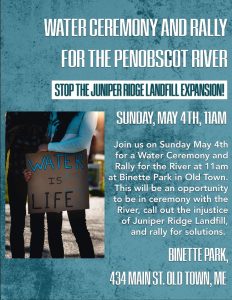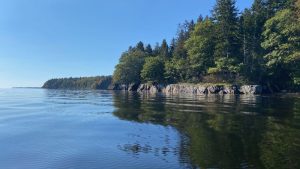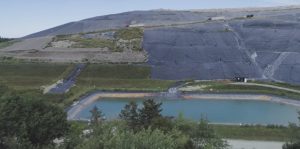Wednesday, December 13th in Brewer
“We are sending a strong message to the LUPC that we do not want Wolfden mining our precious homeland.“
~ Penobscot Nation Ambassador Maulian Bryant
On Wednesday, December 13th, the state Land Use Planning Commission (LUPC) will meet to deliberate on Wolfden Resource Corporation’s controversial application to rezone land surrounding Pickett Mountain Pond to allow the company to engage in metallic mining in northern Penobscot County, and potentially send a green light to the global mining industry that the region is open for development. The Land Use Planning Commission is charged with making decisions on proposed development within the state’s unorganized territories. Among a number of considerations, the applicant must show the change in districting will have no undue adverse impact on existing uses.
Mining opponents plan to gather outside prior to the 10 am proceedings.
The meeting is open to the public, in person or online.
https://www.maine.gov/dacf/lupc/about/calendar/index.shtml
Meeting Date: December 13, 2023 Meeting Time: 10:00 AM
Meeting Location: In-person Jeff’s Catering, 15 Littlefield Rd, Brewer, ME
Via Microsoft Teams (Link provided when clicking on LUPC site, provided above)
Or call in (audio only) +1 207-209-4724,,581380598# United States, Portland Phone Conference ID: 581 380 598#
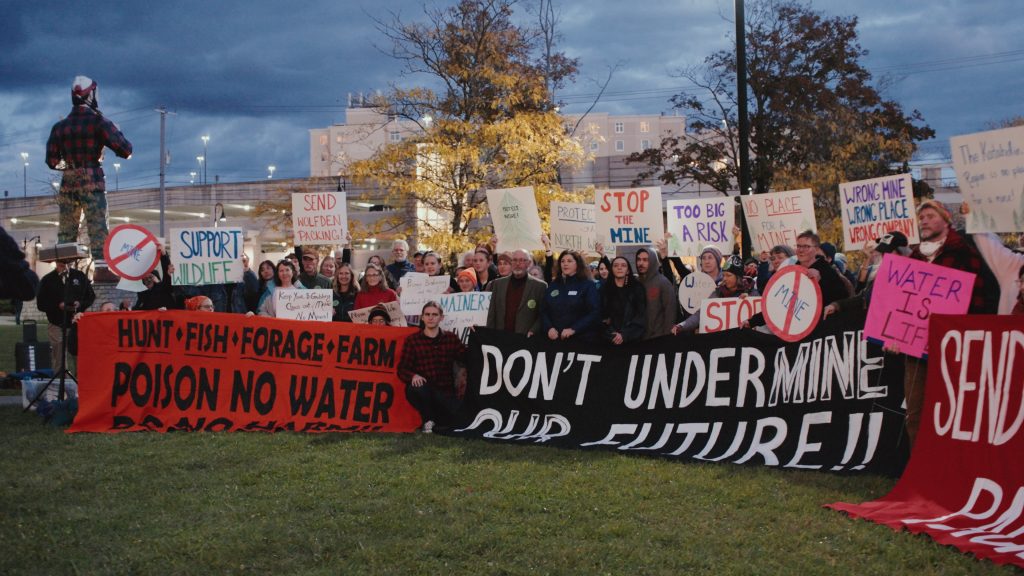
This is the second time since 2020 that exploratory mining company Wolfden Resources Corporation is seeking approval from the Land Use Planning Commission (the LUPC) for the rezoning of 374 acres to allow for the metallic mining of zinc, lead, copper, gold and silver on land surrounding Pickett Mountain Pond. The proposed mine site is at the headwater tributaries of Panawubskaywiduk, (also known as the Penobscot River) the largest watershed in Wabanakik, including water bodies critical to Atlantic Salmon, Brook Trout and recognized sustenance fishing areas
The Wəlastəkwi(also known as the Houlton Band of Maliseets) and the Pαnawάhpskewi (also known as the Penobscot Nation) strongly oppose Wolfden’s LUPC application, and have been formal intervenors in the LUPC application process. The operation of a mine, they say, threatens devastating acid mine drainage pollution that could irreversibly impact water, fish and Wabanaki culture.
Wolfden drew public outrage when a 2021 video surfaced of Wolfden CEO, Ron Little, speaking to shareholders, stating, “There are no Indigenous rights in Maine, so this just streamlines the permitting process.”
One of the most pervasive and devastating impacts from sulfide mining on ecosystems across the globe is acid mine drainage. When sulfide rock is exposed to air and moisture during the mining process it can create sulphuric acid, which can enter ground and surface water. Most aquatic species are intolerant to acidic water, including brook trout and Atlantic Salmon. The acid can also leach heavy metals from the mined rock, such as copper, lead, arsenic and mercury, which also can enter soil, groundwater and surface water. Additionally, high acidity can leach heavy metals from the sediments in water bodies, further endangering aquatic life. The devastation from acid mine drainage around the world is well known, even after closure, as is evident in two mine sites in Maine that closed in the 1970s on the Blue Hill peninsula.
John Banks (Penobscot) speaks against Wolfden’s mine at LUPC public hearing.
In October, the LUPC held three days of intervenor proceedings and public hearings in Millinocket and one public hearing in Bangor. The strong opposition to mining within Maine was evident at the public sessions. Speakers cited water contamination, habitat destruction, the threat to Wabanaki sustenance fishing and culture, and the opening of a mining industry within the state if this project is approved. Those who support the LUPC’s passage of the rezoning application have cited job creation, though these are projected to last only 10 to 15 years. When recognizing the possibility of environmental destruction, industry, public, and LUPC commissioners all have expressed trust in Maine’s new, yet untested Department of Environmental Protection (DEP) “Chapter 200” rules regarding mining, which have been touted as protective and the strongest in the country.
It is feared the LUPC Commissioners will kick the can to the DEP to avoid a difficult decision, while asserting that the DEP has in place measures that will counter any environmental destruction caused by mining. But these new rules are not without deep controversy.
Since 1991, and for the almost 30 years following, Maine had, in practice, the strictest metallic mineral mining laws in the nation. A consolidated permitting process ensured high water quality standards that held off the notoriously pollutive mining industry from establishing operations. In 2012, however, the mining industry successfully lobbied for and achieved the elimination of the consolidated permitting process, effectively divorcing the application for metallic mineral mining permits from the preexisting standards in place for environmental protection. In 2017, when the laws changed again, the consolidation permit process was not restored, though it is now often repeated by mining proponents and opponents alike that these most recent changes established are the most protective mining laws in the country. It was these law changes that Wolfden Resources heralded as their welcome mat into Maine.
In 2019, CEO of Wolfden Resources, Ron Little, spoke to investors at an event, saying,
“ Many of you are probably wondering why Maine. Maine has not been mined for 30 years, but it did develop a brand new mining code a year ago, and this project that I’m going to show you was discovered by Getty Oil back in the eighties, and mainly because the state did not have a clear finish line to the permitting process…but they do now.”
As it is common for junior mining companies to have projects taken over by larger companies, Little noted at the hearings that one of its biggest shareholders, Kinross Gold Corporation may be the company to subsume a project at Pickett Mountain.
During cross-examination, intervenor Attorney Peter Brann pointed out that Kinross had over 3,000 violations in Washington state for violations of the Clean Water Act. The Bangor Daily News reported, in a 2022 press release about a Kinross mine in Washington, State Attorney General Bob Ferguson stated, “Buckhorn Mountain is one of the unspoiled natural areas of our state. These companies had a responsibility, and legal obligation to protect it. They failed in that responsibility, thousands of times.”
The Bangor Daily’s report continued: “ Additionally, the Dept. of Justice entered into a $45 million agreement with Kinross for the clean-up of the Upper Animas Watershed, a Colorado Superfund site. In 2015, the Kinross mine released millions of gallons of water, toxic metals and acidic waste into the river, negatively affecting the region’s agricultural and recreational tourism industries and the natural resources along the river, the DOJ said. Little said he was not aware of Kinross’ connection to the Colorado superfund site.
Last year, when Wolfden Resources began mining exploration downeast in Pembroke, they were met with organized opposition from area residents, including the Passamaquoddy Tribe, citing the fear of acid mine drainage which could contaminate local wells and Cobscook Bay. In May of 2022, the residents of Pembroke voted overwhelmingly to pass an ordinance prohibiting industrial metallic mining in their town. In the towns surrounding the Unorganized Territories of the Pickett Mountain proposal, Wolfden mining corporation has had a much more organized ground game, effectively pushing the industry narrative that the mine would be good for the region’s economy and the environment would be unharmed.

Wolfden withdrew its first rezoning application for Pickett Mountain after the LUPC cited 59 errors and inconsistencies, missed deadlines and insufficient information including details on waste tailing facilities. The company now says these will be located within a yet to be identified town nearby, potentially Patten, Hersey or Stacyville. Therefore, they say, it is out of LUPC jurisdiction and its environmental impacts should not be considered in the current rezoning decision.
